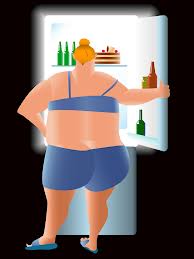Exercise and Your Personal Injury Case
Posted Saturday, August 4, 2012 by Chris Thayer
 One of the issues that I frequently discuss with my personal injury clients is the role that exercise, and overall fitness, plays in the evaluation of their claim and recovery. The caveat I always give is that “I’m not a doctor, and I don’t even play one on TV” so please consult with your healthcare provider before engaging in any strenous activity - to make sure you are not endangering yourself or risking further injury.
One of the issues that I frequently discuss with my personal injury clients is the role that exercise, and overall fitness, plays in the evaluation of their claim and recovery. The caveat I always give is that “I’m not a doctor, and I don’t even play one on TV” so please consult with your healthcare provider before engaging in any strenous activity - to make sure you are not endangering yourself or risking further injury.
That said, there are at least a couple of reasons why ensuring that you engage in regular exercise may help your personal injury case.
- Perhaps the most obvious, is that overall fitness, especially when performed in a safe manner, is generally beneficial to your overall health. This will give you more energy and help you heal faster.
- Insurance companies love to focus in on findings in your medical records about a patient being “deconditioned”. This is a medical euphamism for a person being out of shape, and/or overweight.
 The reason this comes into consideration is that insurance companies are always looking for somethign else to blame your pain and symptoms on - other than the accident that actually caused your injury! So, if you are seriously injured in a car accident and suffer neck and back injuries, the insurance comapany evaluating your case may look to minimize the value of your claim by blaming some of your symptoms on the fact that you are “deconditioned”. It is true that poor posture and weak abdominal “core” muscle can certainly lead someone to be more susceptible to neck or back pain. However, under WA law, even if you are “deconditioned” at the time of the accident, the responsible party (and insurance company) are still liable for all your injuries and damages caused by the accident - even if they are worse because you were “deconditioned”.
The reason this comes into consideration is that insurance companies are always looking for somethign else to blame your pain and symptoms on - other than the accident that actually caused your injury! So, if you are seriously injured in a car accident and suffer neck and back injuries, the insurance comapany evaluating your case may look to minimize the value of your claim by blaming some of your symptoms on the fact that you are “deconditioned”. It is true that poor posture and weak abdominal “core” muscle can certainly lead someone to be more susceptible to neck or back pain. However, under WA law, even if you are “deconditioned” at the time of the accident, the responsible party (and insurance company) are still liable for all your injuries and damages caused by the accident - even if they are worse because you were “deconditioned”.
That said, you have the power to take this argument away from the insurance company. You can focus on getting regular exercise, which will help you feel better - and as a bonus, may help with the evaluation of your claim.
If all you are capable of doing is going on walks, then find ways to walk a little faster or a little further each time. Get a pedometer or use the GPS feature on your smartphone to track your progress. There are a number of free or modestly priced apps out there that will track your course and your pace. As always, mind the advice of your healthcare providers on what is best for you, but as long as you are up for it, I strongly advise all my clients to get out there and start exercising.
